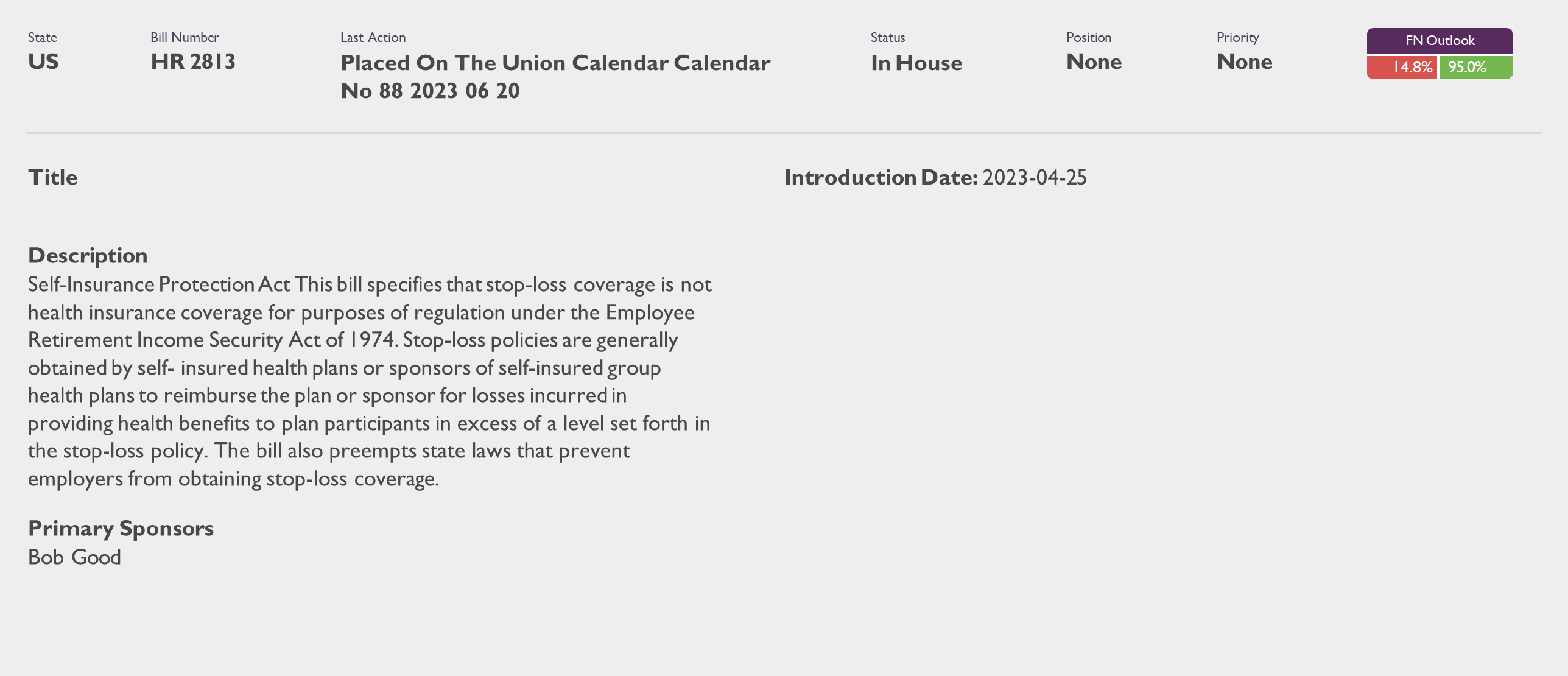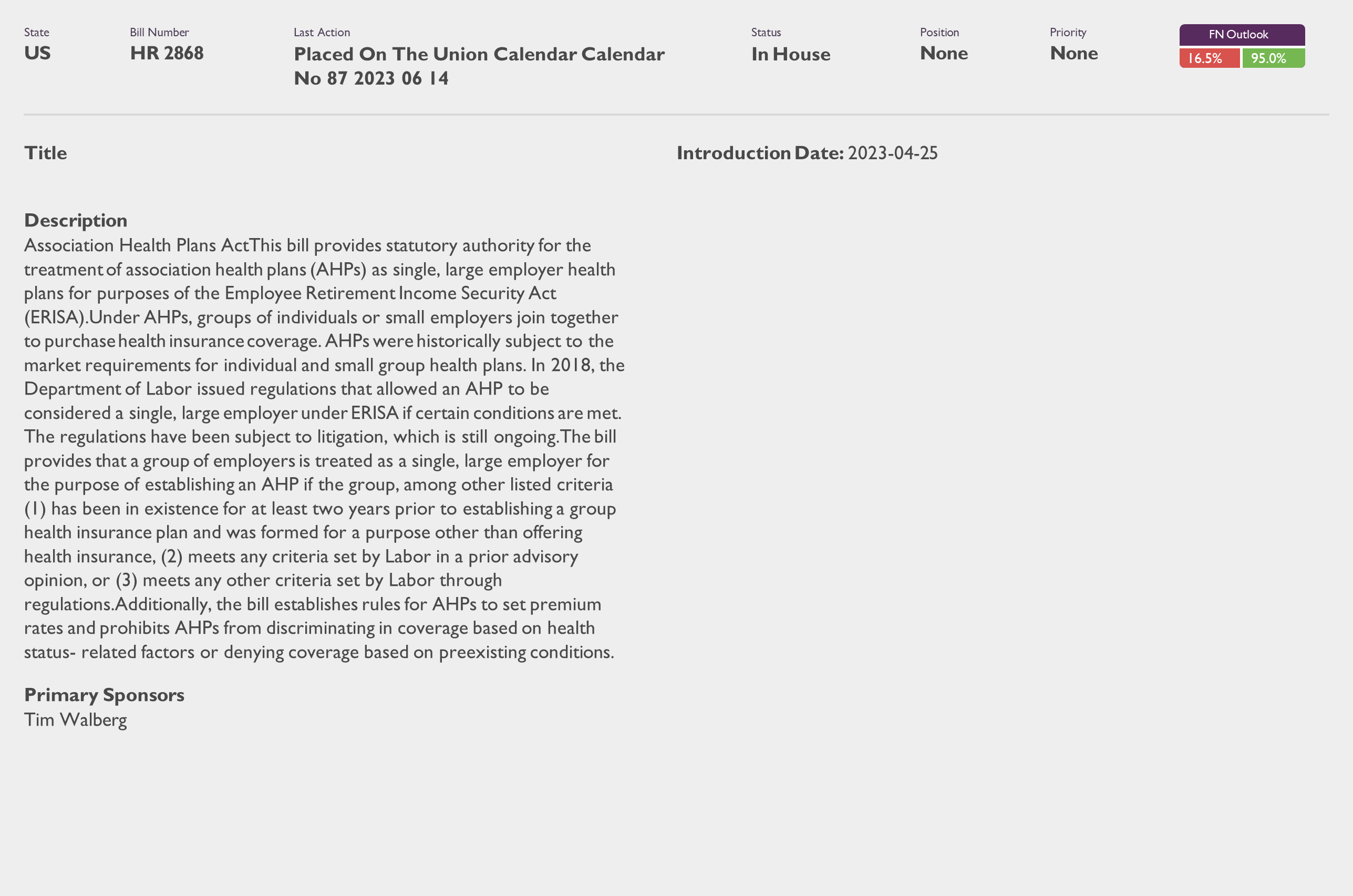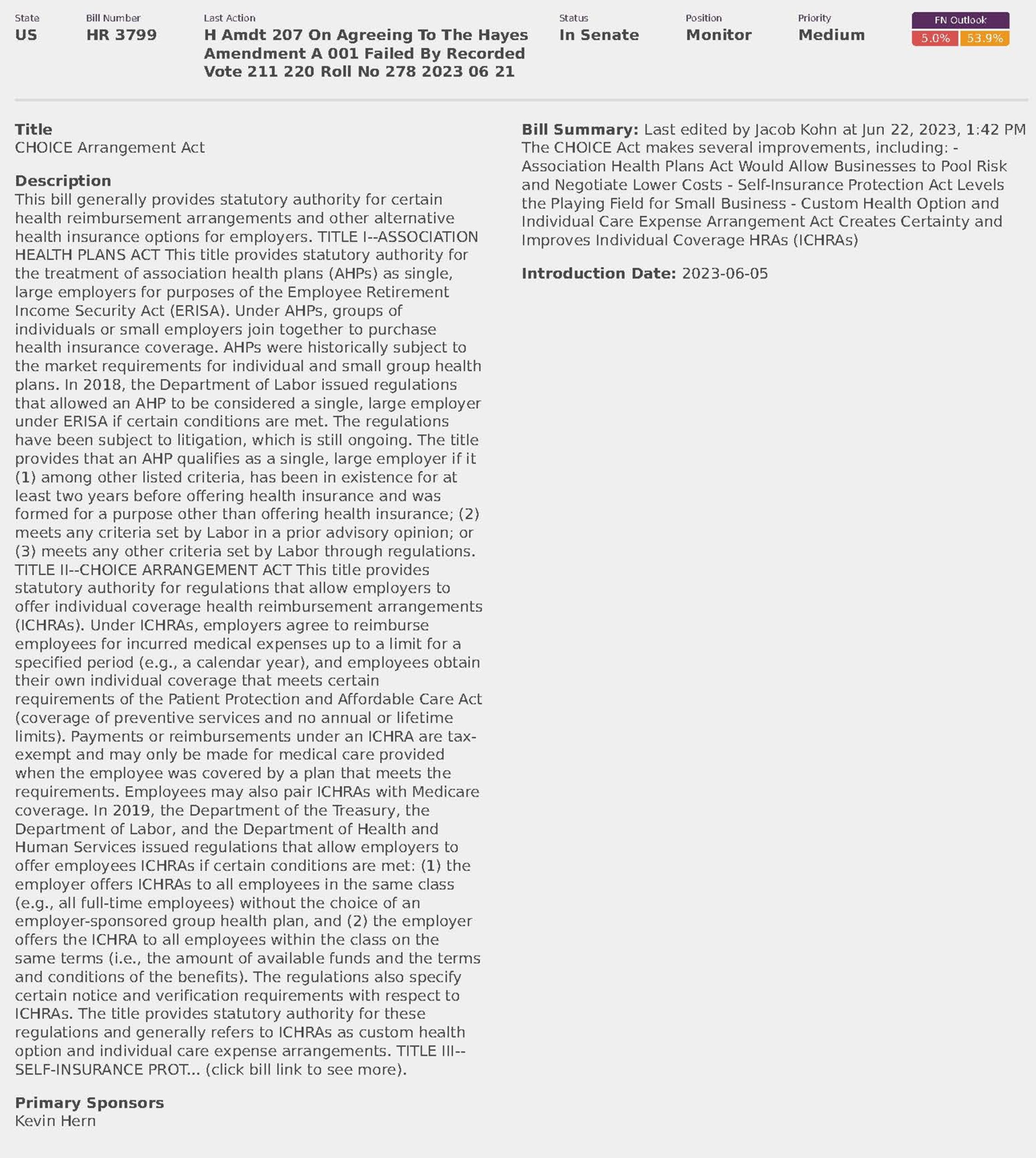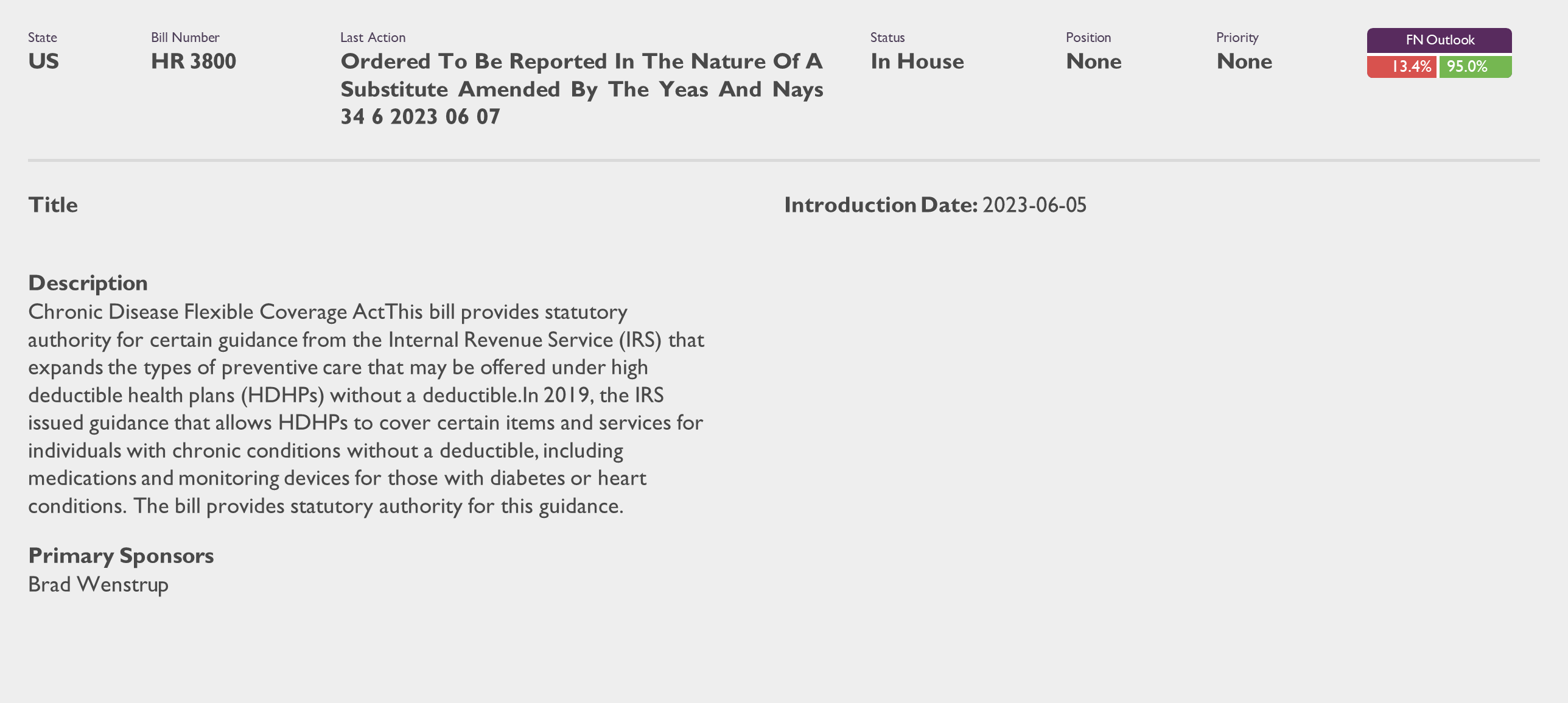
Work on the Hill
June was a busy month on Capitol Hill as Congress geared up for passage of the FY25 appropriations bills and preparations for the July work period.
The House vote on June 14th for the FY25 National Defense Authorization Act marked the start of Congress’s months-long process of approving all appropriations bills for FY 2025. On June 27, in his first public testimony since stepping down from government office, Dr. Anthony Fauci testified before a contentious House Select Subcommittee on the Coronavirus Pandemic about the Covid pandemic. The hearing focused on lessons learned during the pandemic. Fauci addressed claims related to funding for virology research in China and the possibility of a lab leak.
On June 7th, the Department of Health and Human Services (HHS) reported significant gains in health insurance coverage, particularly among minority communities, since the implementation of the Affordable Care Act. Later in the month, on June 26th, HHS announced temporary cost reductions for specific drugs covered by Medicare Part B. These reductions aim to address recent drug price increases exceeding inflation and will be in effect from July 1st to September 30th, 2024.
As the legislative landscape takes shape, Lobbyit will continue to diligently work on Capitol Hill to ensure NEA’s policy priorities are firmly established for the upcoming July work period.
On June 6th, Lobbyit shared Senator Bill Cassidy’s request for information on ways to modernize federal laws to allow independent workers access to portable workplace benefits like retirement and healthcare.
Senate takes procedural vote on tax package
— Laying the groundwork for the big 2025 tax debate: August will likely end with a whimper on tax policy. The Senate is set to take a much- anticipated vote Thursday on a bipartisan tax bill, which includes an expansion of the child tax credit and restored tax benefits for business.
It has been stuck in the chamber for months over the objections of Republicans and is expected to get shot down by the Senate GOP. But the vote will get GOP members on the record against the package, which Democrats will likely exploit in campaigns over the summer and beyond.
With the tax legislation in the rear-view mirror, expect tax writers on both sides of the aisle to start outlining their plans to address the 2025 expiration of the Trump tax cuts. House Majority Leader Steve Scalise (R-La.) says he wants to extend those tax cuts in the first 100 days of the next Congress, and GOP leaders have already begun bicameral discussions on how to use budget reconciliation if the party sweeps in November.
Likewise, we can expect more activity from House Ways & Means Chair Jason Smith (R-Mo.) tax teams, which focus on topics ranging from supply chains to manufacturing and have been hosting roundtables nationwide.
—Meanwhile, Trump has been emphatic about his “no tax on tips” idea off the ground.
We don’t know as much about Harris’ plans, except that she’s sticking with Biden’s plans to not raise taxes on those making less than
$400,000 a year.
Harris put out notable proposals on rent tax relief and bigger, refundable credits for low-income workers, so we’ll be keeping our ears peeled for mention of those and any deviation by Harris from Biden’s tax agenda.
— August for CHIPS: Coming up on Aug. 9 is the second anniversary of the CHIPS and Science Act, which funded billions of dollars in semiconductor subsidies and authorized applied research in a range of emerging technologies to stay competitive with China.
So far, the administration has announced 14 preliminary grants to companies, totaling more than $30 billion in funding that all still need to be negotiated and contracted. The 2022 law initially handed Commerce $39 billion for manufacturing grants to encourage new factory construction, but in a controversial move, appropriators siphoned off $3.5 billion into a Pentagon project for defense chips. That leaves just a little more than $5 billion remaining.
As with last year, expect the administration to tout its progress, while lawmakers and industry experts take a hard look at the implementation, especially as members with pending projects in their districts may call on the Commerce Department to hit the gas.
— Administration workforce policies meet Texas bandsaw: August is poised to be a pivotal month for independent federal agencies attempting to defend progressive Biden administration labor policies.
The National Labor Relations Board is facing an existential crisis after a pair of Texas judges in late July issued rulings declaring that the agency’s set-up is fundamentally flawed and violates the Constitution’s separation-of-powers doctrine.
So far the NLRB is blocked only from pursuing enforcement cases against SpaceX and a Texas energy company, the companies that brought the respective lawsuits. But it raises the possibility of a march on courthouses from businesses hoping to clip a perpetual thorn in their side.
The NLRB plans to ask the conservative-leaning 5th Circuit Court of Appeals to step in later this month, though the issue will likely end up at the Supreme Court at some point.
— Elsewhere in Texas, the Federal Trade Commission is awaiting a final ruling from Judge Ada Brown over the fate of its near-total ban on noncompete agreements. In early July, Brown, a Trump appointee, temporarily blocked the rule from taking effect in September and said she intends to resolve the case by Aug. 30.
Brown has indicated she believes the FTC lacks authority to enact such a sweeping policy, though a judge in Pennsylvania came to the opposite conclusion in a parallel challenge to the noncompete ban.
— Washington digests Pentagon budget clash: Lawmakers are gone until September, and both sides of Capitol Hill are leaving town with wildly different takes on the Pentagon budget.
At issue is whether to boost military spending beyond the $895 billion that the White House requested, which is also the maximum amount allowed under last year’s debt limit deal.
Lawmakers will begin to take stock of the chasm between the two chambers in August and September, as the House and Senate Armed Services panels begin preliminary work on reconciling their competing policy bills — while deciding whether a compromise bill should endorse more defense spending.
But an agreement on defense spending is unlikely to gain traction until after the November elections. And any deal that boosts the Pentagon will almost certainly hike domestic spending as well to win Democratic support.
Chevron Deference Decision
In a 6-3 decision, the Supreme Court’s conservative majority upended a 40-year administrative law precedent that gave agencies across the federal government leeway to interpret ambiguous laws through rulemaking.
Known as Chevron deference, the now-overturned legal doctrine instructed judges to defer to agencies in cases where the law is ambiguous. Now, judges will substitute their own best interpretation of the law, instead of deferring to the agencies — effectively making it easier to overturn regulations that govern wide-ranging aspects of American life. This includes rules governing toxic chemicals, drugs and medicine, climate change, artificial intelligence, cryptocurrency and more.
The move hands a major victory to conservative and anti-regulatory interests that have looked to eliminate the precedent as part of a broader attack on the growing size of the “administrative state.” The Biden administration defended the precedent before the high court. It also effectively represents Justice Neil Gorsuch overturning a precedent that upheld rules issued under his own mother, who was the head of the Environmental Protection Agency in the Reagan administration. Gorsuch wrote a separate opinion calling Chevron a “judge-made fiction.”
This opinion follows a series of Supreme Court decisions rolling back the powers of executive agencies. The case is not the first time the high court’s conservative majority has clawed back federal agency power in recent years. It ruled in 2021 that agencies cannot rule on significant issues without “clear congressional authorization” — creating a higher legal bar for executive branch actions to clear.
Chevron itself dates back to 1984, when environmental advocates sought to challenge the Reagan administration’s efforts to limit air pollution restrictions. The court defended the agency’s action, arguing that its interpretation of the Clean Air Act should be upheld.
While the doctrine applies equally to both Democratic and Republican administrations in theory, in recent years, many conservatives have sought its demise, arguing that agency deference has allowed liberal administrations to enact sweeping regulatory regimes.
Bills by Issue
National Employers Association (8)








